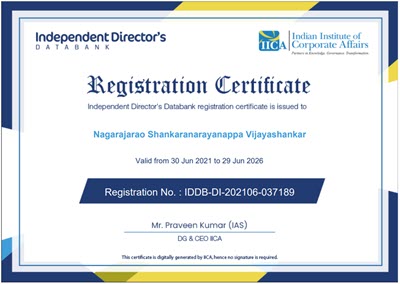The Banking Regulation Act amendment Act 2012 which was recently passed by the Parliament has now become effective.(See PIB Press Release). It amends several provisions of the Banking Regulation Act 1949.
Some of the amendments are directed towards new Branch licensing , raising of capital, voting rights etc.
The Act will
a) Increase the powers of RBI to regulate the erring Banks
b) Provides greater freedom for public Banks for mergers, captital issue etc
c) Increase voting rights
What is of specific interest to the general public are the following amendments
1. Depositor Education and Awareness Fund
A new section 26A has been introduced in the Act which provides for setting up of a “Depositor Education and Awareness Fund” to which the balances in the inoperative accounts in accounts not operated upon for 10 years would be transferred. (Can be claimed back by genuine depositors even after the period). The fund may be utilized for purposes which RBI may specify from time to time in “Depositor’s interest”.
2.Increased Fine for Non Compliance
Further for various kinds of violations under the Act the fines that RBI may impose have been substantially raised. The maximum penalty which was Rs 5 lakhs at present has been increased to Rs 1 crore.
This development is considered good for the industry since it has been found in recent days that the regulations of RBI addressing depositor’s interests were being repeatedly ignored by some Banks.
In recent days “Money Laundering” which generally means “Facilitating the use of Banking services for criminal funds” has been indulged in by Banks as a matter of general policy of business promotion. A sting operation recently exposed such activities un ICICI Bank, HDFC Bank and Axis Bank.
This Business Standard article advocates that fines upto Rs 1 crore may be imposed for KYC failures.
Naavi.org has been discussing how KYC failures are the essential ingredients of any Bank fraud and needs to be curtailed with heavy fines. We have also pointed out how most of the losses of Depositors arising out of Phishing Frauds could be met out of collection of fines on KYC failures at the maximum rate of Rs 5 lakhs per failure if a fund is created for the purpose of insuring the depositors against such losses.
It appears that the scope for creation of such funds has now increased with the above amendment.
RBI may now examine if under the amended Banking Regulations Act, it may create a suitable “Electronic Banking Fraud Protection Fund” from out of a corpus built from the fines collected out of KYC failures observed during encashment of any phishing frauds. The suggestion is that while the Banks can pursue the legal means of locating the offenders and recovering the money from them, the victims must be reimbursed the amount of loss immediately from out of such funds. The payments can be considered as a loan to the Bank and suitable interest may be charged.
The fund may absorb losses arising out of cases where the offenders are not apprehended and money becomes irrecoverable in which case the loan already raised in the name of the Bank is written off. In other cases, recovered money maybe reimbursed to the fund.
The initial fund may be started with a corpus created out of contributions from member banks based on their deposits like the fees payable under DICGC or ECGC schemes.
Naavi










